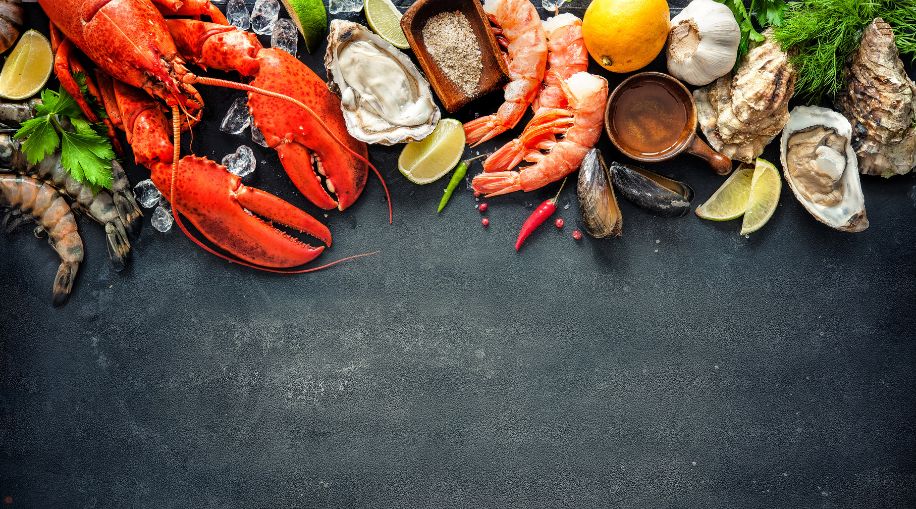Watch Out for These Foods to Avoid Eating on a Cruise
Cruises offer a lot of dining options, but not all foods are worth the risk. Certain dishes can upset your stomach, leave you feeling sluggish or even increase the risk of foodborne illnesses. To make the most of your trip, here’s a guide to the foods you should avoid while on a cruise.
1. Raw or Undercooked Seafood
Sushi, oysters and other raw seafood dishes are common on cruise ships, especially in specialty restaurants. While these can be delicious, they also come with a higher risk of foodborne illnesses such as norovirus or food poisoning. Cruise ships serve thousands of passengers daily, and despite stringent hygiene protocols, raw seafood can still pose a hazard. Stick to cooked seafood options to enjoy the flavors without the risk.
2. Buffets Left Out for Too Long
Buffets are a hallmark of cruise dining, offering a variety of dishes for every palate. However, food that has been sitting out for extended periods can become a breeding ground for bacteria. Avoid items that look like they’ve been out for too long, especially those that need to be kept at specific temperatures, such as creamy salads, seafood or egg-based dishes. Instead, opt for freshly prepared items or food stations where chefs cook to order.
3. New Foods You’ve Never Tried Before
Cruises are a fantastic opportunity to try new cuisines, but it’s best to avoid items that your body isn’t used to, especially if you have a sensitive stomach. Sudden dietary changes can cause indigestion or upset your digestive system, making your trip less enjoyable. If you’re eager to try something new, sample small portions to see how your body reacts.
4. Deep-Fried Foods
Cruises offer a wide range of fried delights, from chicken wings to crispy appetizers. While these are tasty, consuming too much greasy food can leave you feeling lethargic or cause stomach discomfort. The last thing you want on a vacation is to feel weighed down or experience heartburn. Enjoy fried foods in moderation and balance them with healthier options.
5. Unwashed Fresh Produce
Fresh fruits and vegetables are essential for a balanced diet, but improperly washed produce can carry harmful bacteria or pesticides. While cruise lines generally maintain high standards, it’s wise to be cautious. Avoid eating raw, unwashed produce or peel fruits yourself to reduce the risk of contamination.
6. Ice Cream and Desserts Left Out in Warm Conditions
Soft-serve ice cream machines and dessert buffets are popular features on cruise ships. However, desserts that are left out at room temperature or under heat lamps for too long can become unsafe to eat. Look for chilled options or freshly served treats to satisfy your sweet tooth without risking foodborne illnesses.
7. Overly Salty or Processed Foods
Many cruise ships feature processed snacks, salty soups and preserved meats. These can lead to dehydration, especially when combined with alcohol or sun exposure. Since staying hydrated is crucial on a cruise, limit your intake of high-sodium foods and drink plenty of water to keep your body balanced.
8. Food from Ports with Questionable Hygiene Standards
When you dock at different ports, sampling local cuisine can be one of the highlights of your trip. However, not all food stalls or restaurants maintain the same hygiene standards as your cruise ship. Avoid street food, raw or undercooked dishes and food from places that don’t appear clean. Stick to reputable establishments or choose dishes that are cooked fresh in front of you.
9. Creamy Sauces and Dressings
Dishes with creamy sauces or mayonnaise-based dressings may not be stored properly or kept at the right temperatures, increasing the risk of spoilage. These foods can also be heavy and cause bloating or indigestion. Opt for lighter dressings like olive oil and vinegar or skip the sauce altogether to keep meals light and fresh.
10. Too Much Alcohol
While alcohol isn’t a food, it deserves to be mentioned. Cruise ships often offer unlimited drink packages, leading many passengers to overindulge. Consuming too much alcohol can dehydrate you, disrupt your sleep and exacerbate seasickness. Enjoy alcoholic beverages in moderation, and pair them with water to stay hydrated.
Tips for Safe and Enjoyable Cruise Dining
To avoid food-related issues, follow these additional tips while dining on a cruise:
- Wash your hands frequently. Before eating, wash your hands or use hand sanitizer to reduce the risk of illness.
- Ask questions. Don’t hesitate to inquire about food preparation, especially if you have dietary restrictions or allergies.
- Stay hydrated. Drink plenty of water throughout the day to stay refreshed and support digestion.
- Listen to your body. If a dish doesn’t look or smell right, trust your instincts and skip it.

